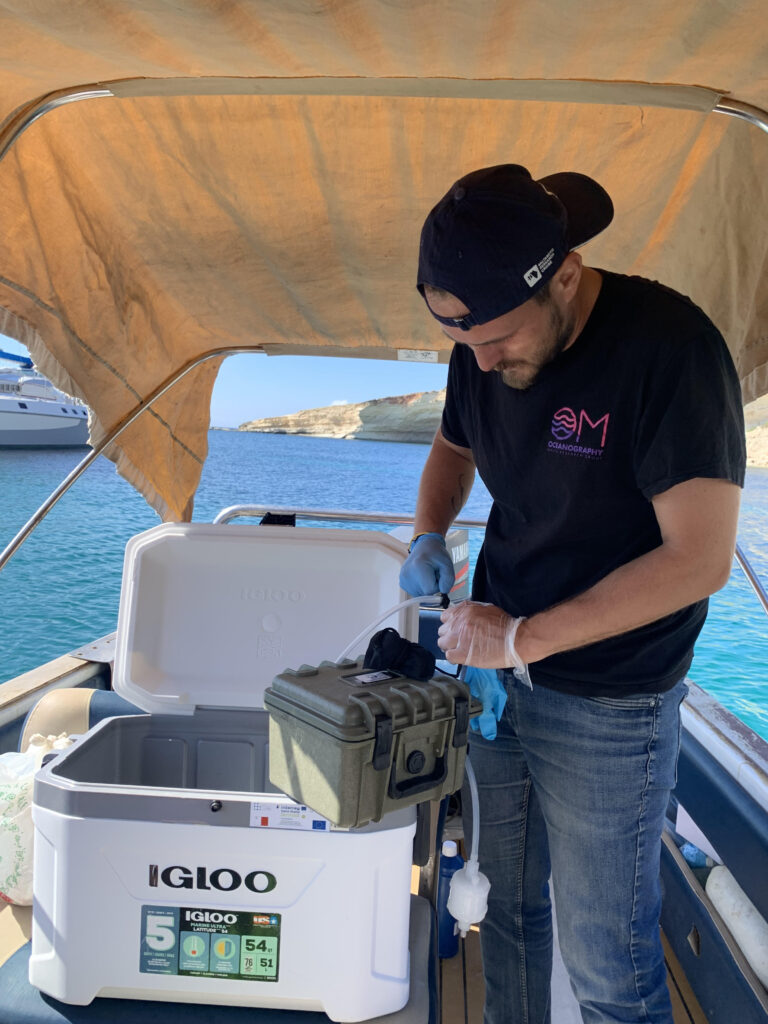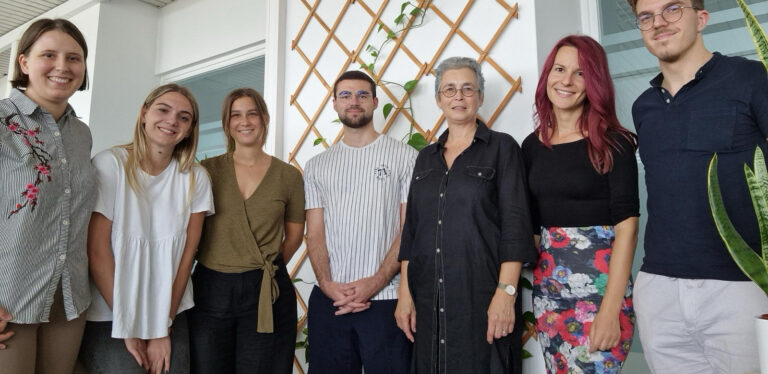
A SEA-EU funded, student-led initiative titled “Application of novel eDNA analysis to predict the effect of climate change using an artificial thermal effluent, a case study in Il-Ħofraż-Żgħira of Malta” is pushing the boundaries of climate and biodiversity research in the Mediterranean. Closely tied to the PhD student Alessio Marrone at the University of Malta, the project applies cutting-edge environmental DNA (eDNA) techniques to monitor the ecological impact of warming waters in coastal environments.
Focusing on Il-Ħofra ż-Żgħira embayment, which is affected by the presence of the thermal discharge from the Delimara power station, the project leverages a natural experimental setting to understand how chronic heat stress reshapes marine communities. By analysing genetic traces found in seawater, eDNA enables the detection of the local fish assemblages, including elusive, rare, and non-indigenous species, offering a powerful early-warning tool in the face of climate change.
The most recent sampling campaign, carried out in May 2025, marked the second of three planned field excursions. eDNA samples were collected in-loco from both Il-Ħofra ż-Żgħira and its adjacent, unaffected twin bay, Il-Ħofra l-Kbira, to compare biodiversity patterns under contrasting thermal conditions. Emily Gambino, a marine biologist from the University of Malta’s SEA-EU team, assisted in this phase of the project, supporting the logistics and execution of the sampling process. A third and final round is scheduled for October 2025 to complete a robust, seasonal dataset.
The samples are now en route to ETH Zurich, where molecular analyses will be conducted. These will help identify species acting as bioindicators of environmental stress, guiding both local conservation efforts and wider SEA-EU goals of marine sustainability and resilience.
Importantly, the project also prioritises community engagement, another cornerstone of the SEA-EU alliance by translating its scientific findings into accessible infographics and outreach materials to raise awareness of climate impacts on marine life.
By uniting academic rigour, international cooperation, and local relevance, the project exemplifies one of the SEA-EU missions: empowering students to lead innovative research that bridges disciplines, countries, and communities in pursuit of a healthier ocean.



